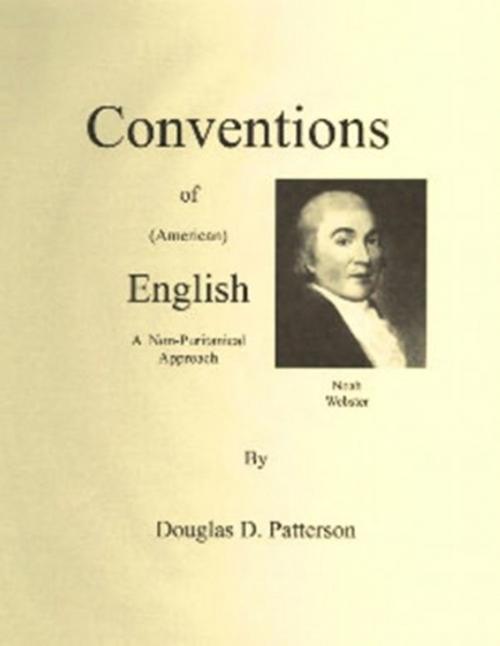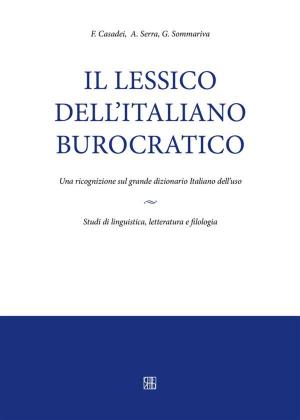Conventions of (American) English
Nonfiction, Reference & Language, Education & Teaching, Teaching, Language Experience Approach| Author: | Douglas Patterson | ISBN: | 9781301425969 |
| Publisher: | Douglas Patterson | Publication: | January 27, 2013 |
| Imprint: | Smashwords Edition | Language: | English |
| Author: | Douglas Patterson |
| ISBN: | 9781301425969 |
| Publisher: | Douglas Patterson |
| Publication: | January 27, 2013 |
| Imprint: | Smashwords Edition |
| Language: | English |
The cover of this book features a picture of Noah Webster, the man most responsible for creating standard American English. He lived during the American Revolution and was an avid supporter of American political and cultural independence. Webster was a successful teacher and writer. His spelling book was once a mainstay of language instruction; but his work as a lexicographer gained him lasting fame. Webster’s Dictionaries made him the de facto Czar American English.
Webster’s influence was so great that teachers viewed his language standards as a sacred trust. For nearly two hundred years our schools approached language instruction prescriptively. Unlike children today, those who attended school prior to the l960s learned that misspelling a word was sin. Today young people take a more cavalier attitude toward spelling standards.
During the revolutionary decade of the l960s linguistic scientists noted that English (and French and German and Spanish) speakers in various regions of the world actually speak very differently. Instead of buying into the Platonic notion that the English language exists in a perfect state somewhere in an ideal universe, they redefined language as an arbitrary system of meaningful sounds invented by those who speak and write it. The various languages grew out of the experiences of the people in particular cultures.
As result of this epiphany Webster was to an extent toppled from his throne. Actually, the most effective revolt was staged from within - by those lexicographers who published a new edition of Webster’s dictionary. Webster’s Third International shifted from telling people how they ought to talk and write to describing how Americans actually do talk and write. English teachers diverted their efforts from a single minded preoccupation with linguistics to a more sensible goal of teaching the four language skills: listening, reading, speaking and writing.
While I applaud the current emphasis, I wonder whether modern day English teachers did not go too far. Emphasizing the four language skils does not preclude spending time studying the language itself. In fact, Noah’s language standards have over more than two centuries served our American community well.
The Biblical story of the Tower of Babel tells us that it is easier for people to live in harmony when they can communicate with each other. Wars are fought most often between groups who speak different tongues. Even people who speak varied dialects of the same language come into conflict more often than those who “talk right.” In Deutschland as late as the l950s, for example, Germans from the various regions of the country still spoke such distinct and varied dialects that a person from Bavaria could not always understand what a speaker from Schleswig Holstein was telling him. Germany solved this communication problem in large part by teaching a single dialect (Hoch Deutsch - Luther’s dialect) in the schools.
This is, of course, what Webster did for the USA during the country’s formative years. His books and dictionaries helped Americans to coalesce around a single language standard long before radio and television began working their magic. Webster’s efforts helped to form our vast country’s population made up of immigrants and language groups around the world into a linguistic unit.
My purpose in writing this book was to round out a series of language arts e-textbooks which I call Conventions of Language, Thinking and Writing. In this book I review the standards of American English laid down in large part by Noah Webster.
The cover of this book features a picture of Noah Webster, the man most responsible for creating standard American English. He lived during the American Revolution and was an avid supporter of American political and cultural independence. Webster was a successful teacher and writer. His spelling book was once a mainstay of language instruction; but his work as a lexicographer gained him lasting fame. Webster’s Dictionaries made him the de facto Czar American English.
Webster’s influence was so great that teachers viewed his language standards as a sacred trust. For nearly two hundred years our schools approached language instruction prescriptively. Unlike children today, those who attended school prior to the l960s learned that misspelling a word was sin. Today young people take a more cavalier attitude toward spelling standards.
During the revolutionary decade of the l960s linguistic scientists noted that English (and French and German and Spanish) speakers in various regions of the world actually speak very differently. Instead of buying into the Platonic notion that the English language exists in a perfect state somewhere in an ideal universe, they redefined language as an arbitrary system of meaningful sounds invented by those who speak and write it. The various languages grew out of the experiences of the people in particular cultures.
As result of this epiphany Webster was to an extent toppled from his throne. Actually, the most effective revolt was staged from within - by those lexicographers who published a new edition of Webster’s dictionary. Webster’s Third International shifted from telling people how they ought to talk and write to describing how Americans actually do talk and write. English teachers diverted their efforts from a single minded preoccupation with linguistics to a more sensible goal of teaching the four language skills: listening, reading, speaking and writing.
While I applaud the current emphasis, I wonder whether modern day English teachers did not go too far. Emphasizing the four language skils does not preclude spending time studying the language itself. In fact, Noah’s language standards have over more than two centuries served our American community well.
The Biblical story of the Tower of Babel tells us that it is easier for people to live in harmony when they can communicate with each other. Wars are fought most often between groups who speak different tongues. Even people who speak varied dialects of the same language come into conflict more often than those who “talk right.” In Deutschland as late as the l950s, for example, Germans from the various regions of the country still spoke such distinct and varied dialects that a person from Bavaria could not always understand what a speaker from Schleswig Holstein was telling him. Germany solved this communication problem in large part by teaching a single dialect (Hoch Deutsch - Luther’s dialect) in the schools.
This is, of course, what Webster did for the USA during the country’s formative years. His books and dictionaries helped Americans to coalesce around a single language standard long before radio and television began working their magic. Webster’s efforts helped to form our vast country’s population made up of immigrants and language groups around the world into a linguistic unit.
My purpose in writing this book was to round out a series of language arts e-textbooks which I call Conventions of Language, Thinking and Writing. In this book I review the standards of American English laid down in large part by Noah Webster.















